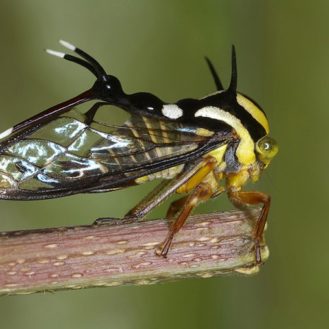Babysplitters centers on one man’s reluctance to commit to fatherhood. Ironically, the film itself doesn’t commit to its awkward humour or its exploration of unconventional families.
During the opening scene of Babysplitters, as I watched Jeff (Danny Pudi) and his wife, Sarah (Emily Chang), go from foreplay to a fight about fertility in less time than it takes for most people to brush their teeth, three thoughts occurred to me in rapid succession. The first was that I would absolutely hate Jeff’s character if he weren’t played by Pudi, who has the magical ability to make even the most douchebag lines come across as a charming combination of irony and vulnerability. The second was that Pudi and Chang had almost zero on-screen chemistry. My third and final thought was that these were two people who very clearly should not, under any circumstances, have a baby together.
Written and directed by Sam Friedlander (Larry Gaye: Renegade Male Flight Attendant), Babysplitters follows two couples, each of whom are on the fence about having kids. While Sarah is ready to get pregnant, Jeff feels that it isn’t the right time. He’s unhappy at work and doesn’t want to lose the freedom that he and Sarah currently enjoy. Their friends Don (Eddie Alfano) and Taylor (Maiara Walsh) are in a similar position; Don wants to start a family, but Taylor, a professional dancer, is worried about the impact that it will have on her career. The friends decide that the perfect solution is to split one baby between them.
Babysplitters’ biggest problem is that it just isn’t very funny. The humour is awkward and cringe-inducing, but not over-the-top enough to be cathartic. Many of the jokes also feel painfully dated and rely on the kind of gender-norm based humour that one would expect to find in a comedy twenty or twenty-five years ago.
While I don’t want to say too much about the ending, but this review would be remiss if it did not discuss the disappointing third act. The decision to end the film the way that it does is downright cowardly. Rather than exploring family, fatherhood, and friendship – as its kooky premise might suggest – the third act ultimately reinforces dominant, conservative ideological perspectives about family and parenthood. Babysplitters perpetuates the notion that successful, healthy families consist of two straight parents and their biological children. It also plays into the tired and arguably harmful myth that people who don’t want children will eventually change their minds.
I wish that I could see past Babysplitters’ ideological biases and find something to love. Unfortunately, though there are a few chuckles and sweet moments to be found, it lacks the heart and humour necessary to overcome the direction its story takes.
**********
Do You Tweet? Follow These Tweeple:
Shannon Page: @ShannonEvePage





Be the first to comment